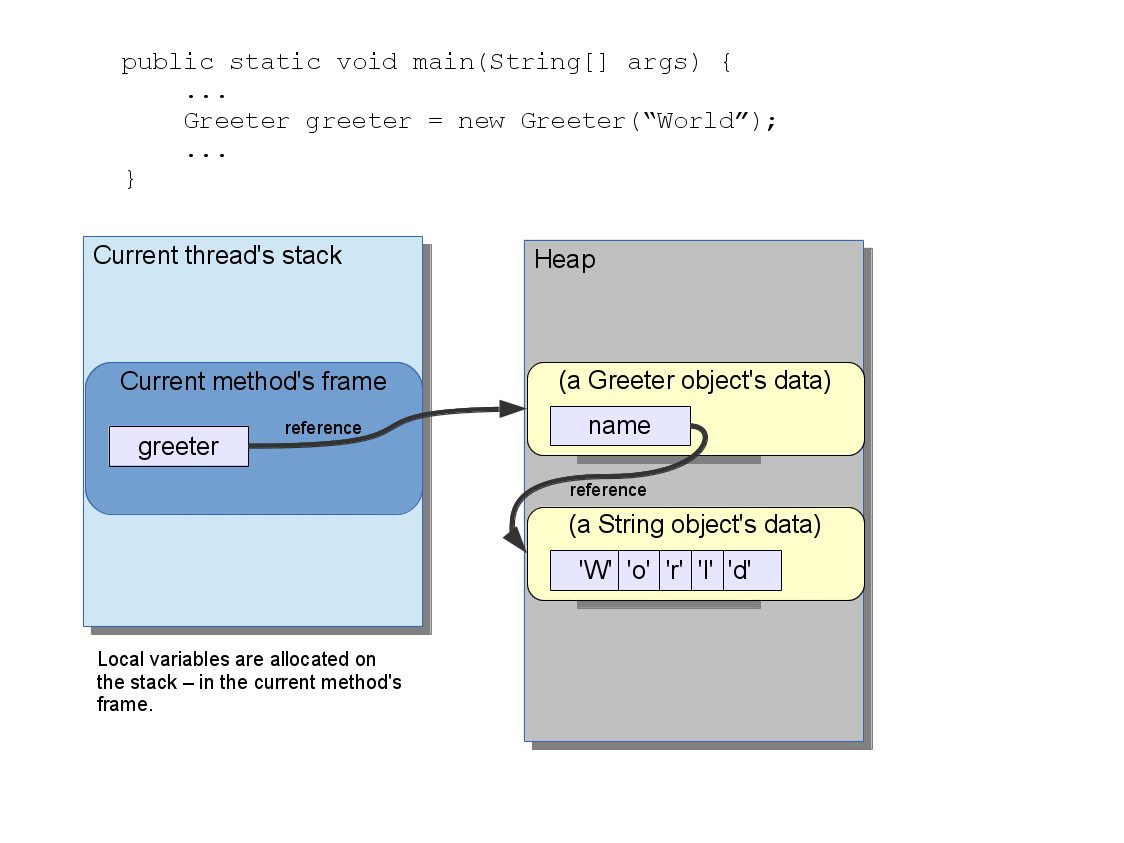Read section "Language Basics" from the Java Tutorial,
http://java.sun.com/docs/books/tutorial/java/nutsandbolts/index.html
Variables
A variable is an item of data named by an identifier.The variable's type determines what values it can hold
and what operations can be performed on it.
Variable declaration:
type nameVariable scope: section of code where the variable's simple name can be used.
The scope is determined implicitly by the location of the variable declaration.
Scope Categories:

Example:
class Myclass {
private int p;
// ....
public void method() {
int i;
for (i=0; i<10; i++) {
int j = i * p;
// ...
}
System.out.println("i=" + i);
System.out.println("j=" + j);
}
}
}
Variable initialization:
With assignment statement:
float pi = 3.1415;
Final Variables:
The value of a final variable cannot change after it has been initialized.Are similar to constants.
final float e = 2.71828183;
Primitive data types:
| Keyword | Description | Size/Format |
|---|---|---|
| (integers) | ||
byte |
Byte-length integer | 8-bit two's complement |
short |
Short integer | 16-bit two's complement |
int |
Integer | 32-bit two's complement |
long |
Long integer | 64-bit two's complement |
| (real numbers) | ||
float |
Single-precision floating point | 32-bit IEEE 754 |
double |
Double-precision floating point | 64-bit IEEE 754 |
| (other types) | ||
char |
A single character | 16-bit Unicode character |
boolean |
A boolean value (true or false) |
true or false |
Reference type:
The value of a reference type variable, in contrast to that of a primitive type,is a reference to (an address of) the value or set of values represented by the
variable:

Arrays, classes, and interfaces are reference types.
Greeter g1 = new Greeter("Students");
Greeter g2 = g1;
int v[] = new int[100];